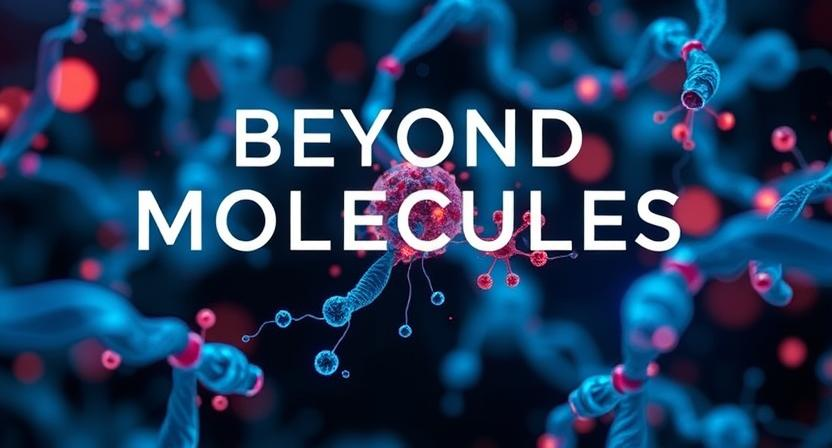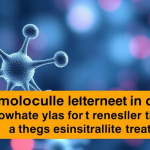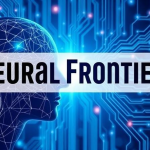The fusion of biotechnology and artificial intelligence (AI) is catalyzing a paradigm shift in drug discovery. For decades, developing a new drug has been a slow, expensive, and uncertain journey—often taking over a decade and costing billions of dollars. Today, thanks to breakthroughs in machine learning, we’re witnessing the rise of a smarter, faster, and more predictive approach to developing medicines.
This new era is marked by remarkable innovations like DeepMind’s AlphaFold, which accurately predicts protein structures—a foundational leap in understanding disease mechanisms. But that’s only the beginning. AI is now redesigning every stage of the drug development pipeline: from predicting molecular behavior and optimizing clinical trials to designing entirely new chemical compounds. The synergy between biotech and AI isn’t just a trend—it’s laying the groundwork for a future where we may be able to create life-saving treatments in a fraction of the time once required.
Predicting the Blueprint of Life: AlphaFold’s Breakthrough
Proteins are the workhorses of the cell, and their function is dictated by their 3D structure. Yet, until recently, predicting how a protein folds was a major unsolved challenge in biology. In 2020, DeepMind’s AlphaFold2 changed that by predicting protein structures with near-laboratory accuracy using deep learning models trained on vast amounts of biological data.
This development was more than a scientific milestone—it became a launchpad for drug discovery. Understanding protein shapes allows researchers to design molecules that bind precisely to targets, enabling the creation of more effective drugs with fewer side effects. AlphaFold’s open-source database, containing structures for over 200 million proteins, is now a treasure trove for researchers worldwide, dramatically accelerating the initial phases of drug design.
AI-Driven Compound Design: The Rise of Generative Chemistry
Imagine telling an AI to “invent” a molecule that treats Alzheimer’s with minimal toxicity and high bioavailability—and having it generate hundreds of candidates within hours. That’s the promise of generative chemistry, an AI approach that uses algorithms to design novel compounds based on specific parameters.
Platforms like Insilico Medicine, Atomwise, and Schrödinger are already using machine learning to generate and evaluate potential drug candidates. These models learn the rules of molecular interactions from enormous datasets, then produce new, optimized molecules with desired properties. It’s like having a digital chemist capable of exploring the chemical universe millions of times faster than any human team.
By combining generative models with reinforcement learning, scientists can now direct molecular evolution toward specific therapeutic goals, refining candidate molecules before they ever enter a lab. This not only reduces the cost of discovery but also increases the likelihood of success in clinical phases.
Smarter Clinical Trials: Predictive Models for Human Response
Clinical trials are the most expensive and time-consuming part of drug development. A staggering 90% of drugs fail during trials, often because they don’t work as expected in human subjects. AI is starting to flip the odds by making trials more predictive and personalized.
Machine learning algorithms can now analyze massive datasets—genomic information, electronic health records, real-world evidence—to forecast how different patient groups will respond to a treatment. This enables adaptive trial design, where protocols can evolve based on real-time results, and allows researchers to identify biomarkers that signal likely responders.
AI can also optimize trial site selection, patient recruitment, and dosage schedules—factors that previously caused costly delays. Platforms like Unlearn.AI even create “digital twins” of trial participants to simulate outcomes, reducing the need for large placebo groups and speeding up results.
Precision Medicine Meets Automation: The Role of Biofoundries
AI is also making its way into biofoundries—automated laboratories where robots, machine learning, and synthetic biology converge. These high-throughput facilities can design, build, test, and learn from biological systems in rapid cycles.
For example, instead of manually testing hundreds of variants of a therapeutic protein, a biofoundry equipped with AI can design the best candidates based on predictive modeling, synthesize them with robotic precision, and analyze results in hours. Each iteration improves the AI’s model, creating a feedback loop that accelerates discovery exponentially.
In the future, biofoundries may act like “app stores” for biotech, where researchers upload blueprints and receive optimized biological components within days. This would democratize access to drug development and further compress development timelines.
From Prediction to Prescription: Regulatory and Ethical Implications
While AI accelerates drug discovery, it also introduces new challenges. How do we validate AI-generated molecules? How do regulators assess black-box models that predict patient outcomes?
Regulatory bodies like the FDA are beginning to adapt, launching initiatives like the Digital Health Center of Excellence to evaluate AI and machine learning in medical applications. Still, establishing transparency, fairness, and safety remains critical. AI models must be explainable, reproducible, and free from bias—especially when making life-or-death decisions.
Additionally, intellectual property laws are being tested. If an AI designs a new molecule, who owns the patent? These are uncharted legal waters that will need to be navigated as AI becomes a co-inventor in drug development.
The Road Ahead: AI-Biotech Synergy in 2030 and Beyond
By 2030, we may see fully automated drug discovery pipelines where AI handles everything from initial hypothesis generation to compound synthesis and trial design. Treatments could be designed not only for diseases but for individual patients, ushering in the long-promised era of personalized medicine.
Emerging technologies like quantum computing could take this even further by solving molecular interactions beyond today’s computational limits. Meanwhile, multimodal AI models—capable of integrating text, imaging, genomic, and clinical data—will provide even deeper insights into human biology.
This AI-biotech synergy could also respond rapidly to global health threats. Imagine identifying a novel virus and designing a vaccine within weeks—not months—using predictive algorithms and automated synthesis platforms.
Conclusion: A New Frontier in Therapeutics
The convergence of artificial intelligence and biotechnology is not just enhancing drug discovery—it’s reinventing it. From protein folding to clinical trials, AI is transforming biology into a programmable science where the pace of innovation is limited only by data and imagination.
As we push forward into this new frontier, the promise is clear: faster, cheaper, and more effective treatments tailored to the individual. For patients, this means hope. For science, it means revolution.






Leave a Reply